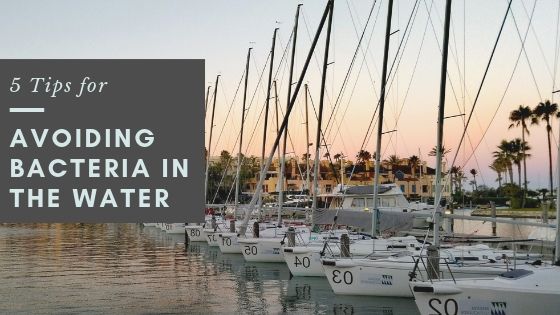You’ve probably recently seen articles about harmful bacteria that are in the water. Some of these bacteria are fatal for animals and plant life and some are even dangerous for humans. Worrying about bacteria in the water can dampen the enjoyment for fishermen, especially when it is quickly becoming a prominent issue. These bacteria can be found in all kinds of bodies of water, but especially in those that are fairly warm year round. We’re also seeing a rise in dangerous bacteria in ocean waters and marinas. No matter what kind of water you’re fishing in, you should be mindful of the water quality and if it’s safe to spend time in. Here are some tips to keep you and your family safe as you go fishing this year.
Watch for open wounds
If you’re planning on spending the day fishing, even if you’re not going to be spending a lot of time in the water, make sure you don’t have any open wounds. Even if you’ll just be putting your arms and legs in, if you have any scratches or cuts, make sure they’re covered so water or bacteria is not exposed to those wounds. Once you’re off of the water, wash off any cuts to clean them.
Avoid injuries
While you’re on and in the water, avoid getting any injuries. Wear protective gear when going into water you aren’t familiar with so you don’t cut yourself on rocks, hidden sharp edges, or on seashells if you’re in the ocean. If you do get a cut or something while fishing, wash it off as soon as possible and look out for signs of infection.
Do your research
Before heading to any body of water, do some research into the quality of that water. Many beaches or large bodies of water will share information on their websites about whether or not there are any advisories for the water quality. Some states, like Florida, have specific websites dedicated to sharing information about the bacteria levels in various bodies of water.
Do not consume
When you are fishing, avoid consuming any of the water or raw food that you may catch, such as shellfish. Make sure shellfish is thoroughly cooked before you eat it. Even when eating shellfish elsewhere, if it’s raw, learn where it comes from before consuming it.
Look out for the signs
You can take all of the precautions, but there is still a chance that you could come in contact with dangerous bacteria while fishing. The most common bacteria found in ocean water is Vibrio vulnificus, though there are other kinds as well. Learn the signs of a bacterial infection after spending time in water; the most common signs are flu-like symptoms.
